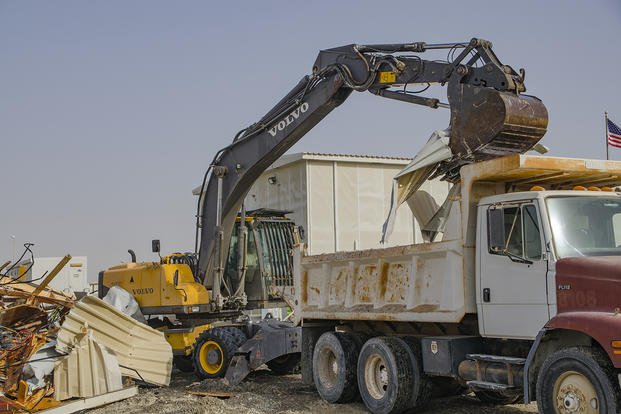Did you play with toy tractors and cranes when you were a kid? Construction equipment operators get to work with the real things and earn more money as they master each piece of equipment.
But this business is hardly child's play, so make sure you're ready to live the rugged life maneuvering sophisticated machines.
Related: Search for Construction jobs.
Industry veterans say now is a good time to be in this business. When contractors rent equipment for a given project, the demand for local operators is high. The contractors can't afford to waste any time getting started.
On the Job
Operators work outdoors in nearly every type of climate. Bulldozers, scrapers, tampers and pile drivers are noisy and body jolting. Expect to get your hands dirty, as well as the rest of you. Some projects may require overnight shifts.
You should also be comfortable with a long commute.
"I've had jobs where I drove 80 miles one way every day; most of my jobs were no closer than 20 miles away," said Jim Minyard, a member of the International Union of Operating Engineers (IUOE) who is now a trainer.
Many get their start working for contractors or landscapers, said Matt Turner, manager of the Tinaja Hills Training Center in Green Valley, Ariz., which offers training, consultation and seminars for operators of Caterpillar equipment. "When [operators] grow in experience, they work for small contractors, building houses and digging sewer lines," he said.
Beginning operators handle light equipment under the guidance of experienced operators. Later, they may operate heavier equipment, such as bulldozers and cranes.
Related: Does your resume pass the 6-second test? Get a FREE assessment.
Training Matters
A high school diploma or equivalent is a standard prerequisite for working in the field, and formal training provides a broad skill set that may make you more employable and able to command higher wages.
Formal apprenticeship programs are administered via the IUOE or the Associated General Contractors of America (AGC). The programs consist of at least three years or 6,000 hours of on-the-job training and 144 hours per year of classroom instruction. Students begin as apprentices and complete their programs as journeymen.
Crane operators undergo special training.
"You can't get on a crane until you have proficiency on three other types of equipment," Minyard said.
Classroom crane training includes studying mathematics and physics, as well as reading blueprints and operating techniques.
Another desirable piece of equipment to master is the motor grader. "Those are complex, and you really have to be an operator for three to four years," said Mick Vaught, training director for Volvo Rents. Grading pavement requires operating accuracy down to a millimeter. Operators attend a one-week course on motor graders to get certified.
Mastering other equipment is a matter of time, Vaught says. Today's excavators, loaders and backhoes are user friendly, due in part to the trend of renting equipment, rather than owning it. "Designs make it as easy as possible to jump from one machine to another," he said. "Operating has never been easier."
Getting Work
Union operators put their names on a list in as many districts as they like. When a contractor comes looking for a person who can operate certain equipment, he'll pick someone off that list. A big construction job could mean several years at the same site, but these jobs never last forever.
If you are looking for a more permanent workplace, you could work as a consultant for a training center, like the one Turner manages. The more variety in your operating skills, the more choices you're likely to have.
"We are looking for experience in a wide range of applications," Turner said. "I want the guy who has worked for a general contractor, sewer and water, and backhoe in a quarry."
Related: For the latest veteran jobs postings around the country, visit the Military.com Job Search section.
The Next Step: Find the Right Job
Whether you want to polish up your resume, find veteran job fairs in your area, or connect with employers looking to hire veterans, Military.com can help. Sign up for a free Military.com membership to have job postings, guides and advice, and more delivered directly to your inbox.











